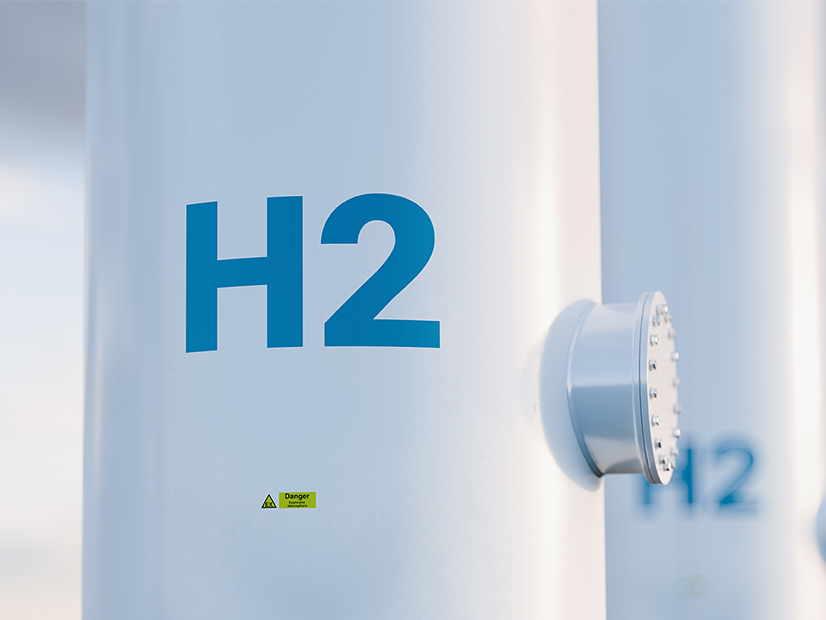As Joe Nolan prepares to take on the role of Eversource Energy’s chief executive on May 5, he is facing the challenge of transitioning New England’s largest utility to be carbon neutral in operations –— and potentially, carbon neutral for its customers.
He has worked for the utility for 35 years, and 25 of those years were spent growing Eversource’s renewable energy portfolio. He is leading the utility’s joint venture with Danish offshore wind company Ørsted to start building three wind farms in the Northeast. Nolan will take over the CEO position from Jim Judge.
Nolan, 58, told NetZero Insider he wants to double down on achieving carbon neutrality for Eversource’s buildings and vehicle fleets as CEO.
But Massachusetts, one of the states Eversource operates in, recently passed comprehensive climate legislation that includes a legally binding commitment to reduce the state’s carbon emissions to 50% below 1990 levels by 2030. President Biden’s proposal to cut emissions in half by 2030 only strengthens state mandates like Massachusetts’s new climate laws.
Nolan likely will lead 4.3 million customers of the company’s electricity, gas and water utilities through the clean energy transition across three states.
“Every little saving around carbon is going to benefit us,” he said.
And Nolan sees Eversource’s expansion in natural gas as “important to move clean energy forward,” he said.
“In this area, you’re going to have fuel or natural gas,” Nolan said. Nearly half of the region’s electric generating capacity uses natural gas as its primary fuel, and natural gas-fired plants produce about 40% of the grid electricity consumed in a year, according to ISO-NE.
The region’s many natural gas lines “needed a professional operator,” which is partially why Eversource is purchasing them, Nolan said.
The utility acquired the Massachusetts natural gas assets of Columbia Gas for $1.1 billion two years after its 2018 Merrimack Valley natural gas explosions, which caused fires in 40 homes and over 80 individual fires in Lawrence, Andover and North Andover.
One person was killed and 30,000 were forced to evacuate their homes.
Federal regulators say the disaster was preceded by a series of glaring mistakes made by Columbia Gas, including poor record keeping.
Climate Legislation
Natural gas power plants have advanced technology that help them run efficiently to emit less carbon compared to coal and oil. Over the years, Eversource has transitioned 25,000 homes from oil to natural gas.
But scientists say that reducing reliance on fossil fuels now will help avoid catastrophic changes and natural disasters that come with a warming climate.
Nolan contends that what Eversource is doing to drive down its carbon footprint is “significant,” and Eversource is researching how to repurpose its natural gas system to distribute clean hydrogen.
“I can’t tell you in 2021 what tools we’re going to utilize,” Nolan said.
Yet the utility plans to spend billions of dollars upgrading pipes that distribute natural gas, and ratepayers will be responsible for covering the cost. The utility is also in the process of renewing three contracts with natural gas supply companies.
The plans clash with the goals of the state’s new climate law, as well as the new climate-driven mission statement for the state’s Department of Public Utilities. But new orders that specify how to wean utilities off fossil fuels are needed before agencies enforcement can happen.
Energy experts like Amy Boyd, director of policy at the Acadia Center, say that the money utilities put into natural gas systems is “buried money and stranded costs” that will fall on low-income and environmental justice communities without the same access to renewable energy options. As a result, those communities will experience higher utility rates.
From a physics perspective, it is “always more thermodynamically effective to just use electricity directly,” Boyd added.
Hydrogen molecules are also smaller than methane. If methane is leaking in the existing natural gas pipe system, then hydrogen will surely leak as well.
“We certainly don’t need to be wasting energy,” Boyd said.
Eversource and Geothermal
As Eversource sharpens its focus on renewable sources of electricity, the utility’s future might also include geothermal heat pumps. Clean energy leaders within the company are testing a geothermal micro-district project in a densely populated area in Boston.
“We are certainly going to be right at the front of that,” Nolan said.
Some renewable energy advocates are skeptical that utilities will seize the opportunity to build geothermal micro-districts because the industry’s incentive structure allows utilities to make more money on gas conversion.
Building new heat pumps would cost the same as upgrading and constructing new natural gas pipes, but utilities will not earn monthly fixed prices on geothermal heat pumps like they would with gas pipes.
“At this point in time, natural gas is the most cost effective,” Nolan said, though he is open to growing the company’s reliance on the electric utility side.
“The answer might change in six months,” he added.
When Nolan started in the industry in 1985, energy was coming from coal, oil, natural gas and nuclear, he said, and reliance on those sources has shifted since then. Eversource has built 70 MW of solar panels in Massachusetts, and the South Fork Wind project with Ørsted on Long Island is set to bring in 130 MW of wind energy.
“At the end of the day, everyone’s intentions are the same,” Nolan said. “I’m very passionate about clean technologies and customer service.”




